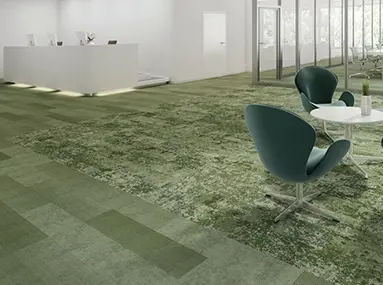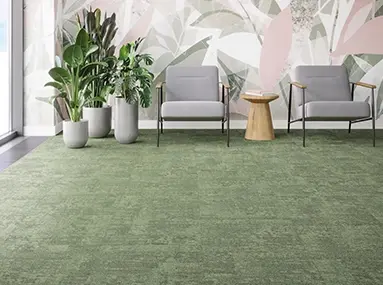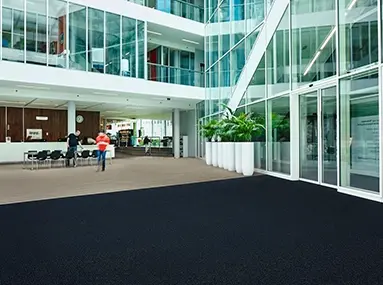Textile flooring
The recyling hero
High recycled content in our textile flooring
On average, we can claim the highest percentage of recycled content by weight in the industry for our carpet tiles, up to as high at 75%. For our Coral textile solutions we use Econyl yarns which are sourced from waste fishing nets rescued from the oceans. The yarns are made from 100% regenerated material. Our modular Flotex backings are made with recycled PVC.
Textile flooring facts
-
100 %
100% of aluminium and steel waste from our Nuway production is recycled
-
59 %
Up to 59% recycled content in Flotex tiles and planks
-
75 %
Our Tessera Create Space 1 carpet tiles collection contains 75% recycled content
Entrance flooring
Keeping floors clean makes them last longer
Forbo Flooring Coral in Krommenie is the factory where we produce our Coral entrance products. Well-designed entrance floors not only offer a sustainable solution in and of themselves, but they also contribute to the sustainability of the building in which they are used, throughout the life cycle of that building.
Our entrance floor coverings can stop up to 95% of dirt from being walked into the building. In this way, entrance flooring can protect the quality of an interior, lengthen the use of a floor and cut down on cleaning and maintenance costs and the use of detergents. We use yarns that are upcycled from old fishing nets for a large number of our Coral collections. The primary backing of our Coral Welcome entrance flooring is made from recycled PET bottles.
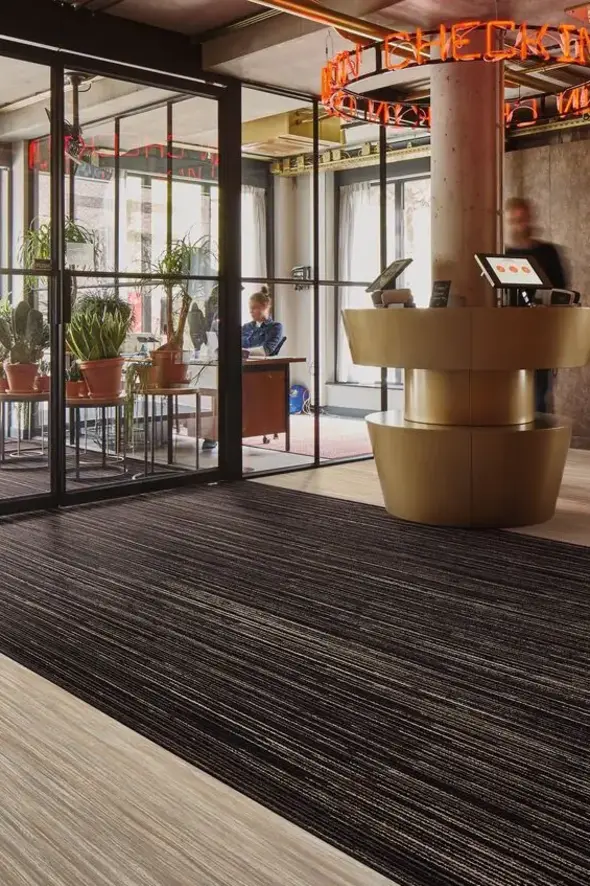
leading in recycled content
Forbo’s carpet tile portfolio features recycled yarn and modified bitumen backing
By weight, our carpet tiles are among those with the highest recycled content in the industry. On average, the percentage of recycled content by weight is at least 60%. Some of our ranges, for example Create Space 1, even have a recycled content by weight of 75%. We also manufacture random-lay tiles that reduce installation waste to less than 2%.
During floor design, we create random-lay tiles so that the parts of the floor that see heavy use can be replaced without this impacting the overall design. We are also experimenting with end-of-life solutions, especially those that involve separating the tiles’ textile layer from their backing.
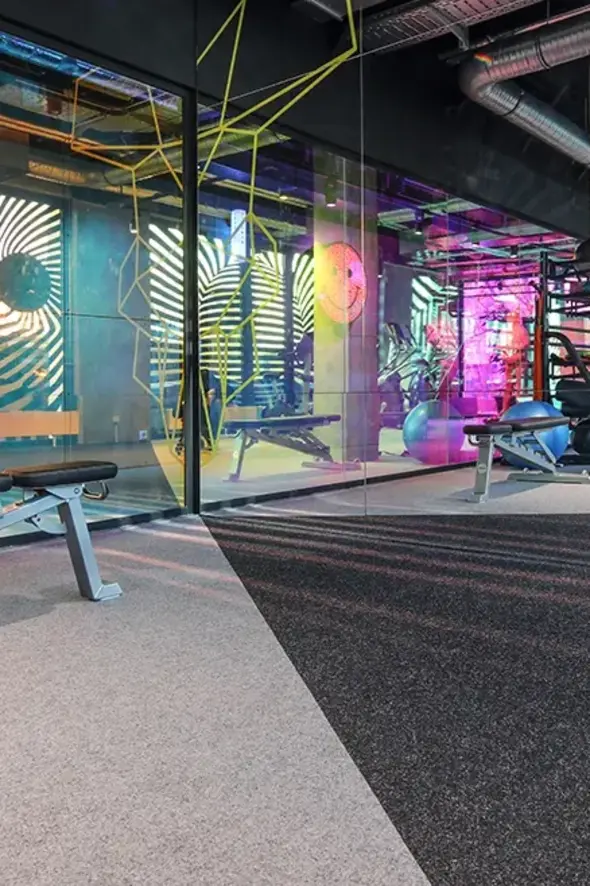
Flotex, extremely durable
Durability lengthens the life of the floor, which is better for the environment
Both hygienic and washable, Flotex nylon carpet is an example of the type of innovation that opens up new segments for textiles. Not only in hospitality, leisure spaces and offices, but also in care and cure facilities, schools and public buildings.
In our factory in Ripley we produce Flotex sheet and tiles. In 2001 we almost completely eliminated our use of landfill by installing the first recycling plant of its kind to convert pre-consumer waste into high performance carpet tile backing. Today this facility processes nearly 50 tonnes of waste a week.
In our factory in Chateau Renault we produce our digitally printed collections like Flotex Vision and the 'created by' collaborations with famous designers. Our factory in Chateau Renault holds two digital printers which print the bespoke designs. In this factory we produce when we get the order so no unnecessary stock is held and therefore no landfill of old collections is created.
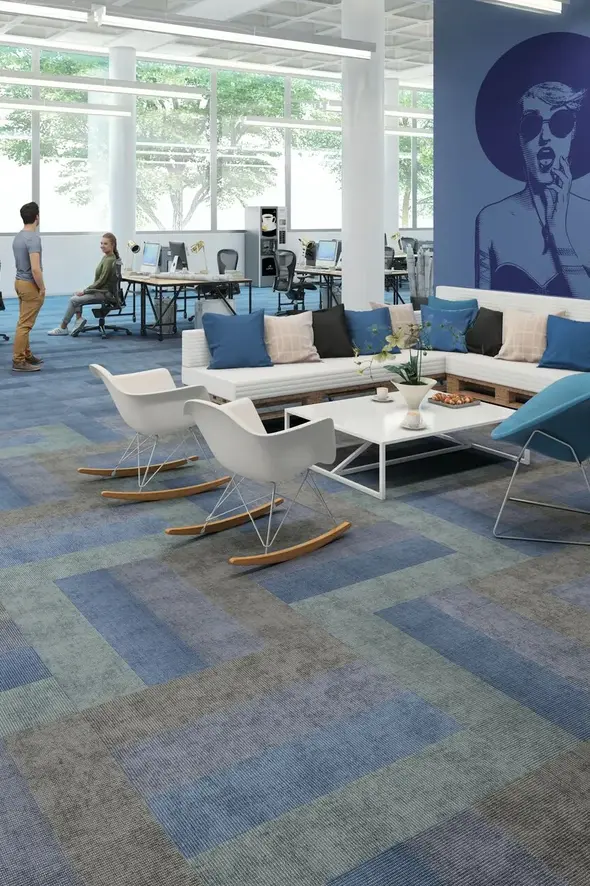
Our floor coverings
meet the building requirements
All our flooring products comply with emission guidelines according to AgBB and M1 standards. We have also certified some of them according to FloorScore. When it comes to building rating systems, most products achieve A or A+ ratings in BREEAM. In LEED, most products directly or indirectly contribute to the following categories and credits:
• Materials and resources building product disclosure and optimisation → EPD up to 2 points
• Building product disclosure and optimisation → sourcing of raw materials up to 1 point
• Construction and demolition waste management → up to 2 points
• Indoor environmental quality → low emitting materials up to 3 points
• Acoustic performance → up to 1 point
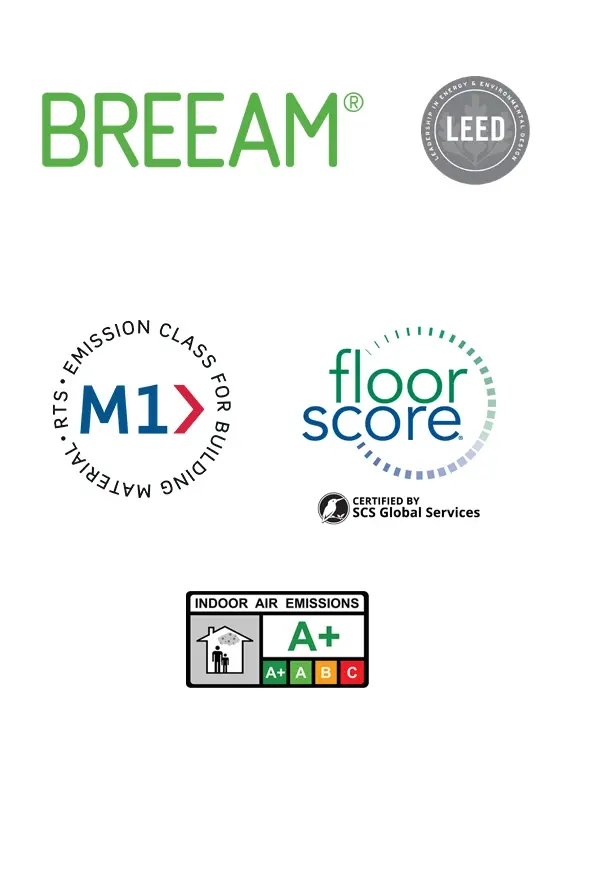
CONTACT
Do you want to know more about our sustainable strategy, our flooring or any other topic? We are here to help you!
Get in touch